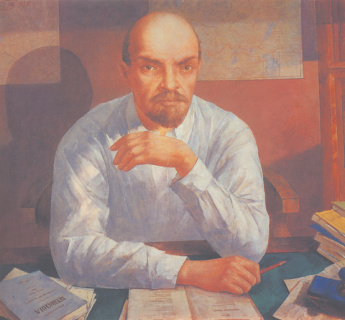
In the intricate tapestry of Russia’s modern history, tales often emerge that blur the lines between myth and reality, revealing the enduring echoes of its past within the corridors of power and the hearts of its people. These are stories not just of geopolitical shifts, but of the human drama unfolding beneath the grand narratives, often whispered in hushed tones or recounted in poignant moments.
One such extraordinary account began in the dead of a Moscow night, with a phone call to a poet, Kirill Kovalji. He relayed a perplexing ‘Kremlin enigma’ repeatedly shared by Sergei Filatov, then President Boris Yeltsin’s influential chief of staff. In the immediate aftermath of the Soviet Union’s collapse, Filatov’s office in the Kremlin sat directly above what was once Vladimir Lenin’s sealed private apartment and office. These rooms, untouched since the fall of the communist regime, were officially off-limits and their doors firmly locked and sealed.
Yet, as Filatov often worked late into the night, precisely at midnight, an unsettling phenomenon would occur. From the sealed apartment below, he would clearly hear the unmistakable, familiar voice of Lenin – a voice etched into the Soviet psyche through countless films and plays – followed by the creak of a door and the distinct sound of hurried footsteps. These sounds, consistent night after night, deeply unnerved Filatov and others who heard the eerie spectral display, leading to a profound sense of mystery. Despite official assurances that the rooms were empty and had been thoroughly checked, the nocturnal occurrences persisted, baffling everyone.
It was a conundrum that evaded explanation until a simple, yet insightful, interpretation was offered. The ‘ghost’ of Lenin, it was suggested, was nothing more than a meticulously pre-recorded audio track, potentially left behind for an unknown purpose before the rooms were sealed. Designed to activate precisely at midnight, or perhaps remotely controlled, it played a loop of Lenin’s voice and characteristic footsteps. The official denial of its presence, rather than solving the mystery, merely underscored the layers of secrecy and potential manipulation within the Kremlin’s walls. This hypothesis transformed a chilling supernatural event into a testament to ingenuity and the enduring, sometimes manufactured, power of historical symbols, even in a post-Soviet era.
Beyond the political machinations and historical riddles, Russia’s narrative is equally rich with deeply personal stories of sacrifice, resilience, and the quiet, often unspoken, tolls of a tumultuous past. These are the human experiences that ground the grand historical events, offering a glimpse into the soul of a nation defined by both its triumphs and its enduring sorrows.
In a chance encounter outside a Moscow composers’ meeting, the narrator crossed paths with Leonid Afanasyev, a decorated composer whose jacket proudly bore the Golden Star of the Hero of the Soviet Union. Afanasyev was not merely a musician; he was a living legend, a veteran pilot of World War II whose story of survival and triumph defied belief. Shot down near Minsk, severely wounded and paralyzed, he was medically discharged, his future seemingly confined to a wheelchair.
However, Afanasyev’s spirit proved as formidable as his wartime courage. In a display of sheer willpower reminiscent of the famous Soviet pilot Alexey Maresyev, he refused to accept his fate. Defying medical prognoses and against all odds, he painstakingly retrained his body, eventually regaining his ability to walk. This incredible feat of resilience transformed him from a war casualty into a national symbol of perseverance, a journey known to all through press accounts, yet still astounding to witness firsthand as he walked swiftly alongside the narrator.
The meeting took a profoundly poignant turn when the conversation drifted to Afanasyev’s past. He revealed that the young woman he had loved, who had stood by him during his darkest days of paralysis, still lived in the same Moscow courtyard. In a bittersweet twist of fate, both had moved on, married, and built separate lives, their youthful affection an unspoken casualty of war and the passage of time. A brief, silent encounter outside his apartment building, an averted gaze, and a shared understanding conveyed a depth of emotion that transcended words. It was a silent testament to the enduring scars of history, not just on nations, but on the individual hearts that comprise them, offering a glimpse into the countless personal narratives that shape the collective memory of a country defined by extraordinary sacrifice and enduring human spirit.
